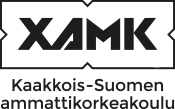Waste management (5 cr)
Code: EE00CX35-3001
General information
Enrollment
16.12.2019 - 10.01.2020
Timing
13.01.2020 - 30.04.2020
Number of ECTS credits allocated
5 op
Virtual portion
2 op
Mode of delivery
60 % Contact teaching, 40 % Distance learning
Campus
Mikkeli Campus
Teaching languages
- Finnish
Seats
0 - 30
Degree programmes
- Degree Programme in Environmental Engineering
Teachers
- Liisa Routaharju
Teacher in charge
Liisa Routaharju
Groups
-
EEMI18SP
Objective
You know the basic targets as well as the economic and environmental aspects of waste management. You are familiar with the possibilities for waste reduction and the techniques used in waste management, reuse and recycling. You can describe the techniques used for hazardous waste treatment as well as the recovery of materials and energy from waste. You know the main features of national and international guidance and regulations concerning waste management.
Content
What is the priority aim in waste management?
How can you know the environmentally best techniques to treat waste?
What kind of waste is not suitable to be taken to landfills? How are they treated, then?
Is waste incineration dangerous?
Who owns the waste and pays for it? How can one benefit from waste?
Teaching methods
Scheduled track:
You know the basic targets as well as the economic and environmental aspects of waste management. You are familiar with the possibilities for waste reduction and the techniques used in waste management, reuse and recycling. You can describe the techniques used for hazardous waste treatment as well as the recovery of materials and energy from waste. You know the main features of national and international guidance and regulations concerning waste management.
What is the priority aim in waste management?
How can you know the environmentally best techniques to treat waste?
What kind of waste is not suitable to be taken to landfills? How are they treated, then?
Is waste incineration dangerous?
Who owns the waste and pays for it? How can one benefit from waste?
Evaluation scale
1-5
Assessment methods and criteria
Students can
a. use professional vocabulary and concepts extensively and proficiently in different situations.
b. justify their information sources in a versatile and critical way.
e. evaluate and develop models, methods, software and techniques.
Qualifications
Basics of engineering chemistry and physics
